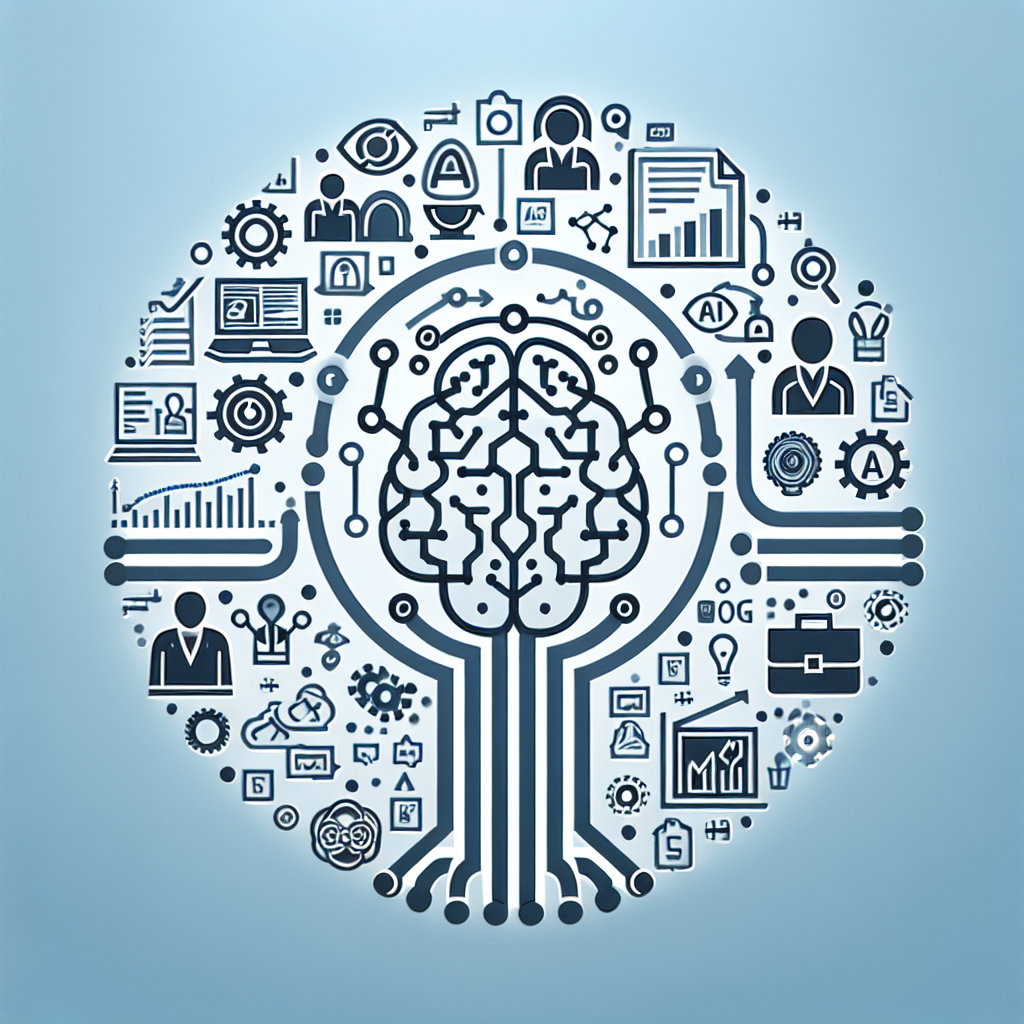Artificial General Intelligence (AGI) is a technology that is rapidly transforming the business landscape. As businesses continue to embrace AGI, the market trends are evolving to meet the demands of this cutting-edge technology. In this article, we will explore how businesses are leveraging AGI and the key market trends that are shaping the industry.
The Rise of Artificial General Intelligence
Artificial General Intelligence, also known as strong AI or full AI, refers to a machine intelligence that possesses the ability to understand, learn, and apply knowledge in a way that is indistinguishable from human intelligence. Unlike narrow AI, which is designed to perform specific tasks, AGI has the potential to think and reason like a human being.
The concept of AGI has been around for decades, but recent advancements in machine learning, deep learning, and neural networks have brought this technology closer to reality. Companies are now investing heavily in AGI research and development, with the goal of creating intelligent systems that can revolutionize industries across the board.
Businesses Embracing AGI
Businesses across various industries are embracing AGI to improve efficiency, enhance decision-making, and drive innovation. From healthcare to finance to manufacturing, organizations are leveraging AGI to gain a competitive edge in today’s fast-paced market.
One of the key areas where AGI is making a significant impact is in healthcare. AGI-powered systems can analyze vast amounts of medical data to diagnose diseases, predict patient outcomes, and recommend personalized treatment plans. This technology is helping healthcare providers deliver better care to patients and improve overall health outcomes.
In the finance industry, AGI is being used to automate trading strategies, detect fraud, and optimize investment portfolios. By leveraging AGI, financial institutions can make faster and more informed decisions, leading to higher returns and reduced risk.
In manufacturing, AGI is revolutionizing the production process by enabling predictive maintenance, quality control, and supply chain optimization. By using AGI-powered systems, manufacturers can improve operational efficiency, reduce costs, and increase productivity.
Market Trends in AGI
As businesses continue to adopt AGI, several key market trends are emerging that are shaping the industry. These trends include:
1. Increased Investment in AGI Research and Development: Companies are investing heavily in AGI research and development to create intelligent systems that can learn and adapt to new challenges. This includes developing advanced algorithms, building robust data infrastructure, and training AI models on large datasets.
2. Integration of AGI with Existing Systems: Businesses are integrating AGI with existing systems to enhance decision-making and improve operational efficiency. By combining AGI with other technologies such as IoT, cloud computing, and blockchain, organizations can create a seamless and interconnected network of intelligent systems.
3. Focus on Ethical AI: With the rise of AGI comes concerns about ethical issues such as bias, privacy, and accountability. Businesses are now focusing on developing AI systems that are transparent, fair, and accountable to ensure that they are used responsibly and ethically.
4. Rise of AIaaS: AI as a Service (AIaaS) is gaining popularity as businesses look to leverage AGI without the need for significant upfront investment. AIaaS providers offer AI-powered solutions on a subscription basis, allowing organizations to access cutting-edge technology without the need for in-house expertise.
5. Collaboration between AI and Human Intelligence: Businesses are recognizing the importance of collaboration between AI and human intelligence to achieve optimal results. By combining the strengths of AI with human intuition, creativity, and empathy, organizations can create a powerful synergy that drives innovation and growth.
FAQs about AGI
Q: What is the difference between AGI and narrow AI?
A: AGI refers to a machine intelligence that possesses the ability to understand, learn, and apply knowledge in a way that is indistinguishable from human intelligence. Narrow AI, on the other hand, is designed to perform specific tasks and lacks the general intelligence of AGI.
Q: How is AGI transforming industries?
A: AGI is transforming industries by improving efficiency, enhancing decision-making, and driving innovation. In healthcare, AGI is helping providers deliver better care to patients. In finance, AGI is optimizing investment portfolios and detecting fraud. In manufacturing, AGI is revolutionizing the production process with predictive maintenance and quality control.
Q: What are the ethical considerations of AGI?
A: Ethical considerations of AGI include concerns about bias, privacy, and accountability. Businesses are now focusing on developing AI systems that are transparent, fair, and accountable to ensure that they are used responsibly and ethically.
Q: How can businesses leverage AGI?
A: Businesses can leverage AGI by investing in research and development, integrating AGI with existing systems, focusing on ethical AI, adopting AIaaS, and collaborating between AI and human intelligence.
In conclusion, AGI is a transformative technology that is revolutionizing industries across the board. Businesses that embrace AGI are poised to gain a competitive edge in today’s fast-paced market. By understanding the key market trends and leveraging AGI effectively, organizations can drive innovation, improve operational efficiency, and achieve sustainable growth in the digital age.

